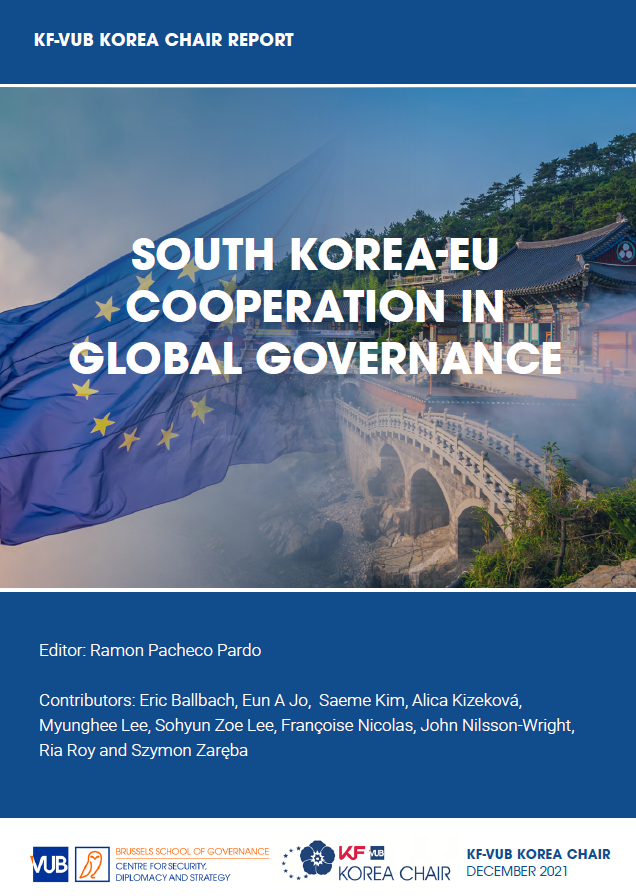
Françoise Nicolas contributed the chapter on trade, providing more insights into the opportunities and challenges South Korea and the EU need to address to revive the rules-based multilateral trading system.
Trade policy is one of the few areas in which the EU as such has full and exclusive competency: the EU negotiates trade deals on behalf of the Member States and operates as a single actor at the World Trade Organization (WTO), where it is represented by the Commission and the Permanent Representation of the EU.
Also, under the Lisbon Treaty, the European Parliament has an important scrutiny role on international trade policy. In terms of doctrine, the EU has always been among the main promoters of effective international trade based on the rule of law. As a result, it has consistently prioritized a multilateral approach although it does not exclude resorting to preferential trade agreements (PTAs) as complements.
Likewise, South Korea has been a strong advocate of the General Agreement on Tariffs and Trade (GATT) and the WTO. While it continues to support trade liberalization at the multilateral level, PTAs have also become central to South Korea’s trade policy since the late 1990s. Today, South Korea has become a hub of PTAs and is in a unique position within the WTO, having undergone a remarkable economic transformation from a developing to an industrialized country.
> Read the full report South Korea-EU Cooperation in Global Governance on the website of the Brussels School of Governance.






